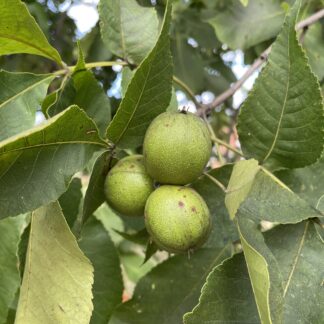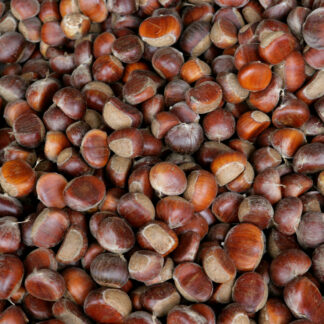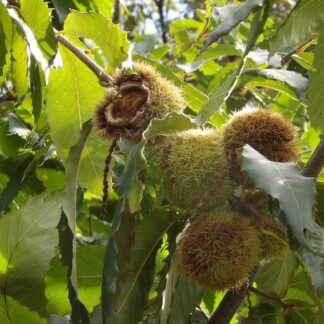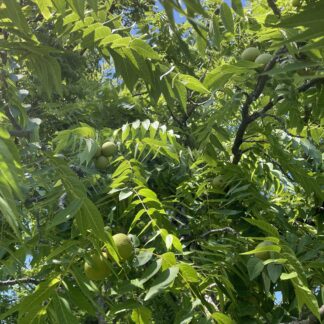Description
Delicious, plentiful nuts offered in cycles supply the whole neighborhood with nutritious food. Beginning as early as age 4 they begin to bear fruit in masts, coordinating with other trees to drop massive quantities as a reproductive strategy- if there are so many nuts that even the squirrels can’t eat them all, then some will germinate in the spring. Their husk takes some effort to remove and their shells are impressively thick but the prize inside is more than worth it. At 6.8g of protein per ounce (1/4 cup serving), they are a relative who can truly be relied upon. Once the husk is cleanly removed and the nuts are cured they can last for years in proper storage, carrying you through the years between masts.
Black walnuts were brought up north by Haudenosaunee people whose ancestors likely traded for them with Indigenous nations further south and then planted them around their towns. If you see wild stands of black walnut in upstate New York today, these are direct descendants from those brought north.
Walnuts produce a chemical called juglone which is said to inhibit the growth of certain other plant relatives- but the science is actually still out on that one, and there is conflicting evidence about just how inhibiting the chemical is. What we do know for certain is that many, many native plants tolerate or even enjoy the presence of juglone. The native plums, grapes, and persimmons, as well as pawpaws and blackcaps, are all able to flourish in the presence of black walnut. In fact, some combination of them would make a lovely guild planting for maximum biodiversity and food production.
These seeds were gathered from local mother trees with a spur-bearing fruiting pattern (as opposed to terminal-bearing, which results in lower yields). Black walnuts prefer moist soil and full sun, but can handle drier soils too.







